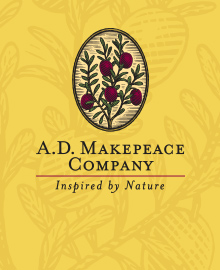PLYMOUTH – To celebrate Earth Day 2024, the A.D. Makepeace Companies, in coordination with Sustainable Redbrook, today announced the creation of a Miyawaki Forest at Redbrook. Commonly referred to as a pocket forest or tiny forest, the effort will bring more than 300 native plants to the River Run Way entrance of Redbrook. The forest planted at Redbrook will be the first Miyawaki Forest in the southeastern part of Massachusetts.
The Miyawaki Forest concept focuses on planting biodiverse, native, pocket-sized forests that lead to cooling, increased biodiversity, and carbon sequestration, among other benefits. The forests are typically installed in urban areas, with at least eight already growing or planned in Massachusetts, ranging from 1,100 square feet to 4,300 square feet.
The A.D. Makepeace Company’s Read Custom Soils (RCS) division will partner with the Redbrook Community to use the site as a pilot project for evaluating various types of engineered soils that best help the forests sequester carbon, provide tree canopy, and deliver habitat and environmental benefits. The project will be open to Redbrook residents, interested landscape architects, climate resiliency scientists, and interested members of the public to visit and engage.
Sustainable Redbrook, a group of Redbrook residents, identified the site at the entry to the community as an ideal location to showcase the project. Members of Sustainable Redbrook and Redbrook staff walked the site and refined the plan. Their involvement will continue with maintenance and documentation of the forest.
“Something that Redbrook residents have in common is a sophisticated understanding of environmental issues and concern for the planet,” said Dan Gorczyca, project executive for Redbrook. “This will be a great opportunity for all of us to watch the forest grow and be part of its success.”
Site work is expected to begin this spring. The first step is to tree-spade some trees already existing on site, which Project Manager Evan Miller, RLA ASLA, said will be transplanted to the new Redbrook Square property.
Next, two feet of compacted soils at the River Run Way site, home of the Redbrook sales trailer before the Meeting House was constructed, will be removed and replaced with the RCS’s proprietary Miyawaki Forest Planting Soil. The blend includes coarse sand, natural base loam, mature leaf compost, biochar and a mycorrhizal fungi inoculant. After planting, an additional four to six inches of RCS Miyawaki Forest Floor Layer will be placed over the soil and around the 350 new plantings in the 2,000-square-foot space. Though small at the time of planting, these densely planted young whips simulate the layers of a natural forest and allow for rapid growth of tree species, sub species, shrubs, and groundcover and can help to create a forest in just 20 to 30 years.
“We see this as a way for municipal officials and landscape professionals to see how a Miyawaki Forest could work in their own community,” said Jim Kane, president and chief executive officer of the A.D. Makepeace Company. “In an urban setting, it can mitigate heat islands, provide a habitat for beneficial insects and pollinators, and beautify a neighborhood.”
The tiny forest method thrives best when many native plants are introduced to an area that has been properly prepared, thus allowing the plants to grow quickly, with a canopy layer reaching mature height and shading smaller trees and shrubs. This site will allow visitors to walk through this emerging ecosystem and compare its growth with the neighboring established native pine barrens forest.
“Sustainable Redbrook embraces the Miyawaki tiny forest concept and looks forward to assisting in the installation and maintenance of this exciting project,” the organization said in a prepared statement. “Not only will our Redbrook Pollinator Pathway be further enhanced due to the Miyawaki Forest biodiversity, but this project will also help to create a greener and healthier future for our Redbrook community while providing a warm and inviting welcome for all who visit Redbrook every day.”
The A.D. Makepeace Company is evaluating area sites for another similar installation.
The 169-year-old A.D. Makepeace Company is developer of the award-winning Redbrook, North America’s largest cranberry grower, the largest private property owner in eastern Massachusetts, and a recognized leader in environmentally responsible real estate development and stewardship. Visit admakepeace.com for more information.
